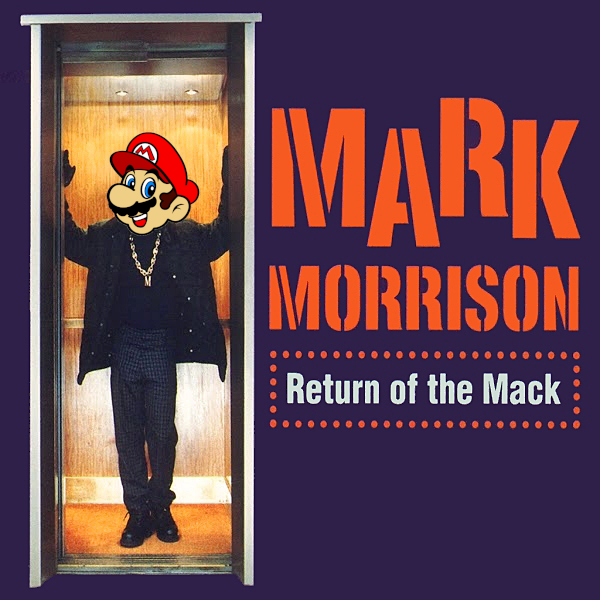My Personal Rock and Roll Hall of Pretty Good
Boy oh boy, do I love needlessly involved pop-culture taxonomies. And, as stated before on this blog, I love remembering guys. Part of my affinity for these taxonomies is that they help me make sense of a vast and chaotic pool of information. Also, it's fun to talk about albums and bands (and movies and basically everything else) as if they were athletes. It helps create a meta-story about work I find interesting.
Credit where credit is due: this whole mess has been inspired by the twin remembering-guy behemoths of the MLB Hall of Pretty Good and the NHL Hall of Good. I like what these guys are doing because the superstars don't need further enshrining. What we want to commemorate are people that made us happy through their talent while committing the supposed sin of not being a world-dominant legend. You love Marian Gaborik and Hideki Matsui, I love the Beat (the American band, not the British one) and Matthew Good.
I do want to make a delineation between RRHoPG artists and albums. I think the former is the main draw, underappreciated artists that fall between the cracks of history. But I do want to make room for unheralded albums by bands that, while not S-tier legends, do have some cache in muso circles. So here are my criteria for induction into these hallowed halls:
MAIN HALL (aka the ARTIST WING)
- Artist must have at least three main releases (y'know, album albums)
- Artist must have no bolded main releases¹ on Rate Your Music.
- Artist's highest-rated album cannot exceed 3.60²
- Artist cannot be in the Rock and Roll Hall of Fame as themselves (but can be in as part of a group; Paul McCartney is ineligible for the RRHoPG, but Phil Collins is)
ALBUM WING
- Album must be an officially-released album
- Album must be unbolded on Rate Your Music
- Album must have a rating under 3.60 on RateYourMusic
- Primary artist cannot be enshrined in the Rock and Roll Hall of Fame as themselves
So all of these albums are eligible for the Album Wing, but the artists themselves vary in their eligibility to the Hall. These albums have been selected because they are the albums I have listened to the most (according to my last.fm page) that qualify for the hall. None of these are shocking picks if you know me at all.
And now, onto our first crop of inductees into the Album Wing of my own personal Rock and Roll Hall of Pretty Good.
The Clientele, God Save the Clientele (2007) Well this is hardly surprising. I've written at length on this very blog about my love for the Clientele, but never about this album in particular. It's their first album as a quartet, with newly-hired utility player Mel Draisey providing violin, keys, and background vocals. This is also their Americana album, recorded in Nashville with producer Mark Nevers from Lambchop, and featuring an assist from Wilco's Pat Sansone. This album is classic Clientele, dreamy and autumnal and lightly psychedelic, augmented with winsome country trappings. The steel guitar is already the saddest and most beautiful sounding instrument on the planet; in a Clientele song, it makes the melancholy weapons-grade. Artist's Hall of Pretty Good eligibility status: Ineligible (Suburban Light is a bolded album)
FM-84, Atlas (2016) Are you a lo-fi girl or a synthwave boy? I know which one Colin Bennett is. The Scottish producer is firmly the latter, making music as sharp and alluring as the neon sunset on the cover of his sole full-length as FM-84. The knock against synthwave is that it can often feel like hollow nostalgia, a collection of 80s signifiers that coldly snap to grid. But Bennett is also a designer by trade; he knows how to infuse what could be empty pastiche with real warmth and soul. Enter featured player (and since 2018, official band member) Ollie Wride, an English singer who injects the vocal numbers here with real juice. I cannot adequately express to you how much I love “Don't Want to Change Your Mind.” It's one of the great songs of our young century. Artist's Hall of Pretty Good eligibility status: Ineligible (only one album released)
Kiwi Jr., Cooler Returns (2021) “Man, Derek is talking about Kiwi Jr. again?!” Yes, god dammit, and I'll keep talking about them until they replace the faces on the 5, the 10, the 20, and the 50 with those of the four dudes in this band. Head Kiwi Jeremy Gaudet is one of my favourite active lyricists, and not just because we seem to like a bunch of the same movies. I love the way these guys put songs together; I love the detail in the stories they tell, I love the way their guitars sound, I love the brightness and the tunefulness. If I ever make my ill-fated mumblecore comedy about a scene of local Letterboxd obsessives, you bet your ass I'm putting “Waiting in Line” under the closing credits. Artist's Hall of Pretty Good eligibility status: Eligible!
The Rural Alberta Advantage, Departing (2011) There's a lot of Pitchfork-core that's going to end up in this hall of fame. Most indie-rock sickos who were around during the aughts might point to the RAA's first album, 2008's Hometowns, as HoPG-worthy, but for my money, it's the wearier, less-heralded follow-up that merits inclusion here. This is a sad, spare, wintry album, Americana (Canadiana?) trudging through knee-deep snow, hoping no part of it will succumb to hypothermia. Paul Banwatt is a beast of a drummer, a one-man jungle wrecking crew propelling these aching tunes into uncharted rhythmic territory. This is what makes the Rural Alberta Advantage unique. Artist's Hall of Pretty Good eligibility status: Eligible!
Tycho, Awake (2011) This is the second electronica-ish album on this list whose main creative force is a designer by trade. Tycho is the nom de downtempo of Scott Hansen, who is better known in the kerning-and-CMYK spaces as ISO50 (here's some fun Derek lore: I was super into this thing called Layer Tennis, where designers would trade images back and forth and iterate on design ideas; Hansen participated in 2016, and other key Derek people who were involved include Aaron Draplin, Austin Kleon, and Jason Kottke). Hansen has a style he returns to—hazy, melodic downtempo—but other Tycho album has the effect on me that Awake does. This albums sounds like waking up too early and walking bleary-eyed on a beach as the Sun slowly makes its presence felt. Artist's Hall of Pretty Good eligibility status: Eligible!
Who are your first-ballot Rock and Roll Hall of Pretty Good artists and albums? I'm always on the lookout for cool stuff off the beaten path.
¹ In RYM-speak, this just means that an album can't be part of the X highest-rated albums on the website. At time of writing, I believe the threshold for a bold album is being in the top 7500 all-time. If all your albums are outside of that, you're eligible! And why this website? Well, it's got a big, passionate userbase and it's as good a sample of crowdsourced opinions as I can find.
² Why 3.60? I dunno, feels about right.






